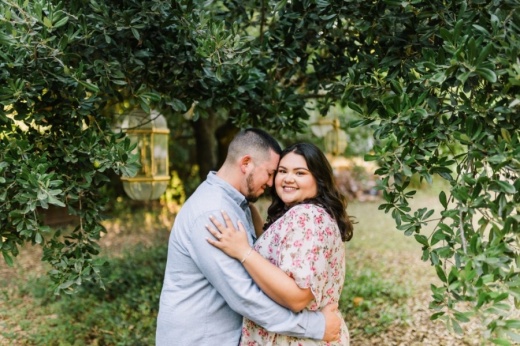The couple are part of a growing number of brides and grooms faced with the decision to postpone their wedding a second time or take the financial hit of cancellations fees and lost deposits as the pandemic continues to shake the wedding industry.
“I'm probably going to be bitter about [canceling the wedding] for a while,” Tovar said. “It's really unfortunate ... But I am glad that I decided to cancel after all, not wanting to have my [wedding] pictures with masks on.”
In March, Williamson County issued a “Stay Home Stay Safe” order, paralyzing the event industry. Some weddings cut back attendees from the hundreds to 10 people, while others rescheduled for the fall in the hopes of better days to come, Blue Events & Co. owner Amberley Adams-Thomas said.
Adams-Thomas said the industry has two peak seasons—in the spring and in the fall. She said it is during these times she is booked all weekend and every weekend, working to send couples into marital bliss without a hitch.
But in the spring, when everything began to shut down, she feared she would lose half her annual income. Now, she is grappling with the fact she has now lost a year’s income. In addition to wedding postponements, Adams-Thomas said she is not seeing a lot of new bookings.
“Nobody really wants to book new weddings or start planning during this pandemic, it seems like,” she said.
Adams-Thomas said she usually plans 44 events a year. This year through the fall, 17 are planned to happen. Because of this, she said she decided not to take a salary to keep her business afloat.
Other businesses have not been able to survive at all: Round Rock’s Urban Picnic, which was supposed to cater desserts for the Tovar wedding, shuttered in July, citing coronavirus challenges after 10 years in business. AWE Staffing, a vendor for the Tovar wedding, also closed.
“It's just, it's really heartbreaking. I feel like every day I'm on some of my social media groups with other professionals, [and] people are just closing up shop or putting a pause on their business,” Adams-Thomas said. “Honestly, the industry is kind of in shambles.”
Adams-Thomas said one of the biggest hurdles the industry is going through at the moment is of couples postponing their weddings until late 2020 or 2021, as it is starting to dig into potential revenue for her business the following year.
“If we are seeing that we have to push [events] from March until December of 2020 or into 2021, that's not only going to take away one year of business—that's going to take away two years of business,” she said.
For Tovar, who spent a year planning her wedding and worked to lose 50 pounds to fit into her wedding dress, said the stress of constant replanning became too much. After finding out the guests they really wanted to be at their wedding, such as their grandparents, are high risk, Tovar said they were ready to throw in the towel.
While the couple—who privately wed in March—still plan to hold a party for the friends and family in 2021, the decision to cancel cost an estimated $10,000 in lost deposits and cancellation fees. But more than anything, Tovar said she just wants the photos, which they plan to take in September.
“My husband still hasn't seen me in [my dress], and we've already been married for five months,” Tovar said. “So we're going to do the pictures and be creative with it.”





